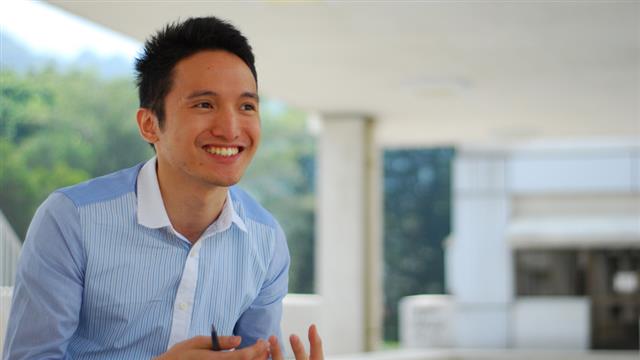What attracted you to neuroscience?
I chose it primarily out of curiosity. The brain is a complex organ. It enables us to perceive, think and to have will power. But what are the physical basis and scientific mechanisms that support the brain's function? Scientists know very little. I wanted to unlock these secrets. The study of neuroscience is special because it uses many quantitative approaches in mathematics and physics to analyse biomedical issues, and I was keenly interested in applying these methods.
You finished doctoral studies before undertaking clinical training, unlike most local medical students. Why?
I reprioritized my studies using as reference the Doctor of Medicine and Doctor of Philosophy (MD PhD) programme in the US in which students would spend two years in pre-clinical studies before pursuing a doctorate, and then receive clinical training in the last two years. I wished to model my studies on the programme to develop my problem-solving skills at a younger age. Medical school requires students to be knowledgeable. But little attention is paid to the origin of medical doctrines. They are, in fact, derived from scientific research. As an undergraduate student, I didn't have time to explore that. But I was eager to find out what's in the scientific research. So, after I finished the Intercalated Degree Programme in Medical Sciences degree, I applied for leave for four years from the Faculty of Medicine. I studied for a PhD and completed one-year post-doctorate research training.
Were you aware of the underlying risks of your decision?
I was often told that there's no guarantee of success in research and PhD studies. But I didn't worry that much. I am a persistent person and I'll strive to realize what I want. We need to bear the risks if we aim high. After I arrived in the UK, I discussed my research topic with my supervisor. No one knows if it was feasible, or what it would lead to. My supervisor was a very ambitious person, and so was I. We both long to be challenged.
What was the greatest reward of your decision?
My horizons were broadened, and I learned that we mustn't create boundaries in scientific research. In the UK, government departments, educational institutions and laboratories are willing to invest in research that is significant. If the topic is important and interesting, they'll develop new technologies tailored for it even if they lack the necessary technology for conducting experiments. I would do the same if I had my own lab one day. Another thing that impressed me was the talent. When I joined my supervisor's lab, there were only four members. One was an oncologist with superb computer programming skills. The other two colleagues were former mechanical engineering and civil engineering students who changed their specializations due to their immense interest in the human brain. They applied engineering methods on neuroscience research and got encouraging results. In the eyes of UK researchers, interest ranks first. Inadequacy in one's ability and lack of knowledge won't hinder them. Hence they have a lot of inter-disciplinary research projects.
You are a fan of Dr. David Ho. Why?
Dr. David Ho was TIME 'Man of the Year' in 1996. His efforts at investigating the mechanisms of HIV replication and transmission, and his invention of 'cocktail therapy' were lauded worldwide. I moved to Hong Kong in the same year. As a Primary 3 student in a new environment, I needed an icon, a purpose in life, and a clear object to guide myself. I came across his name on TV and in the newspapers, and I too wanted to be successful just like him. I made up my mind to pursue a career that would allow me to contribute to society.
What are your future plans?
The first task is to complete my clinical training. I must learn well since I'll need to take care of my patients in future. I'll keep in contact with professors, take part in lab work and attend academic conferences to keep up with advancement in research. After I complete my houseman training, I wish to start my own lab and continue my neuroscience research.



